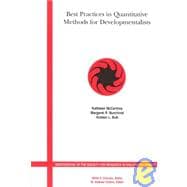
Note: Supplemental materials are not guaranteed with Rental or Used book purchases.
Purchase Benefits
What is included with this book?
at Georgia State University, Atlanta, Georgia. He is the author, with
J. M. Gottman, of Observing Interaction: An Introduction to Sequential Analysis
(2nd ed.; 1997), and, with V. Quera, of Analyzing Interaction: Sequential
Analysis With SDIS and GSEQ (1995). His interests include observational
methodology and sequential analysis of observational data.
Denise Brewer (Ph.D., University of North Carolina at Charlotte) is currently
an Assistant Professor at Appalachian State University in the Child
Development Department. She earned her Ph.D. in special education. She
also received her master’s degree from the University of North at Carolina
Chapel Hill in early intervention and family support and her undergraduate
degree from Appalachian State University in birth through kindergarten.
Research interests and background include assessment issues with
young children.
Kristen L. Bub (M.Ed., Harvard Graduate School of Education) is a fifth
year doctoral student in Human Development and Psychology. She earned
her master’s degree in human development, with a concentration in research
methods, from the Harvard Graduate School of Education. Her
research focuses on the role that early education experiences play in children’s
social and academic development.
Margaret Burchinal (Ph.D., University of North Carolina) is a Senior Scientist
and director of the Data Management and Analysis Center at the
Frank Porter Graham Center and Research Professor of Psychology at the
University of North Carolina at Chapel Hill. She is a methodologist who is
best known for her methodological work on longitudinal modeling as well
as for her substantive work on child care.
The New copy of this book will include any supplemental materials advertised. Please check the title of the book to determine if it should include any access cards, study guides, lab manuals, CDs, etc.
The Used, Rental and eBook copies of this book are not guaranteed to include any supplemental materials. Typically, only the book itself is included. This is true even if the title states it includes any access cards, study guides, lab manuals, CDs, etc.